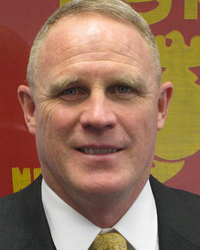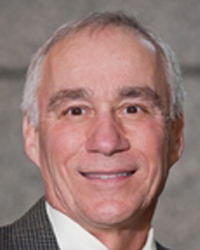Staff
Staff
 Eric Womble brings many years of experience in the defense industry and the executive and legislative branches of the U.S. federal government to his role as a Senior Fellow.
Eric Womble brings many years of experience in the defense industry and the executive and legislative branches of the U.S. federal government to his role as a Senior Fellow.
Mr. Womble was an executive at Northrop Grumman Shipbuilding and Huntington Ingalls Industries from 2004 through 2012. He was initially responsible for the Large Deck Amphibious program and then the Advanced Capabilities Group that did R&D, strategic planning, advanced concepts and new business development for the Shipbuilding sector, which had $6 billion in annual sales. While at HII and Northrop Grumman Corporation, he also served in leading Corporate Programs Division.
He has over 23 years of experience serving in the Executive and Legislative Branches of the United States federal government. He became the National Security Advisor for Senator Trent Lott, Mississippi, in 1995. He was instrumental in setting and passing legislation and appropriations that positively impacted the Department of Defense, its service members and their families. He also coordinated all military, legislative and budget activities with the Pentagon, other Congressional offices, industry, academic institutions, the Senate Armed Services Committee and the Senate Defense and Military Construction Appropriations Subcommittees.
Mr. Womble also serves on the Board of Directors for Decision Sciences International Corporation, Juliet Marine Systems, Mississippi Ammunition Corporation and ELTA North America.
Eric Womble received his undergraduate degree in 1979 from the United States Naval Academy and was designated a Naval Flight Officer in 1980. After his first squadron tour, he supported the Office of the CNO (OP?81). Concurrently, he earned an MBA from Marymount College of Virginia and served as a White House Social Aide for President Ronald Reagan. Following his tour in Washington, D.C., he was assigned as Flag Secretary to Commander Seventh Fleet in Yokosuka, Japan, assigned as a Fleet Replacement Instructor in Patrol Squadron THIRTY (VP?30) and Operations Officer in Patrol Squadron FORTY?NINE (VP?49).
Mr. Womble served as principal Executive Assistant to the Chief of Naval Research from 1992 to 1995.
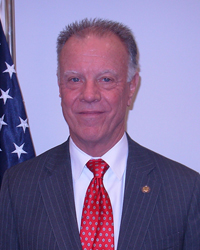 Michael Shank is the former Staff Director for Minority Members, House Permanent Select Committee on Intelligence, U.S. House of Representatives.
Michael Shank is the former Staff Director for Minority Members, House Permanent Select Committee on Intelligence, U.S. House of Representatives.
Previously, Mr. Shank was the first NSA/CSS Representative to USCYBERCOM. As the senior advisor, he provided technical knowledge, insight and leadership to optimize NSA/CSS enterprise support to USCYBERCOM and their service components. Prior to that assignment, he served as the Deputy NSA Chief of Staff for Cyber and was responsible for Cyber Strategy and Policy and for NSA/CSS support to planning for USCYBERCOM.
He is viewed as an imaginative theorist and operational planner for the employment of Cyber and Intelligence operations. As a direct outcome of his contributions, the NSA/CSS and the U.S. CYBERCOMMAND served as key sources of technical expertise and operational capability for projecting power and conducting defense in cyberspace.
Mr. Shank served as Deputy Commander, Menwith Hill Station from July 2007 to 2009, providing overall NSA senior management for the largest field site and contingent of NSA personnel outside of Headquarters. He served as an Associate Director of the NSA/CSS Threat Operations Center from August 2006 to July 2007; during that period, he was responsible for the development of the Cyber Initiative. From February 2005 through July 2006, as NSA/CSS Representative Defense, he served as DIRNSA’s senior representative in the Pentagon and provided Cryptologic leadership and technical insight in support of Department of Defense, the Joint Chiefs of Staff, and the Service Headquarters senior leadership.
Mr. Shank also served as Director, Information Operations Technology Center (IOTC) from April 2002 to February 2004. The IOTC, established by the Secretary of Defense and the Director of Central Intelligence in March 1997, was a partnership through which the Defense and Intelligence communities worked together to improve the nation’s technical capabilities to conduct information operations. Additionally, he established Network Attack Support Staff (NASS) as the permanent staff element of the U.S. Strategic Command’s Deputy Commander, Network Attack Planning and Integration, and he served as Chief of Staff to the Deputy Commander for Network Attack from August 2003 to February 2005.
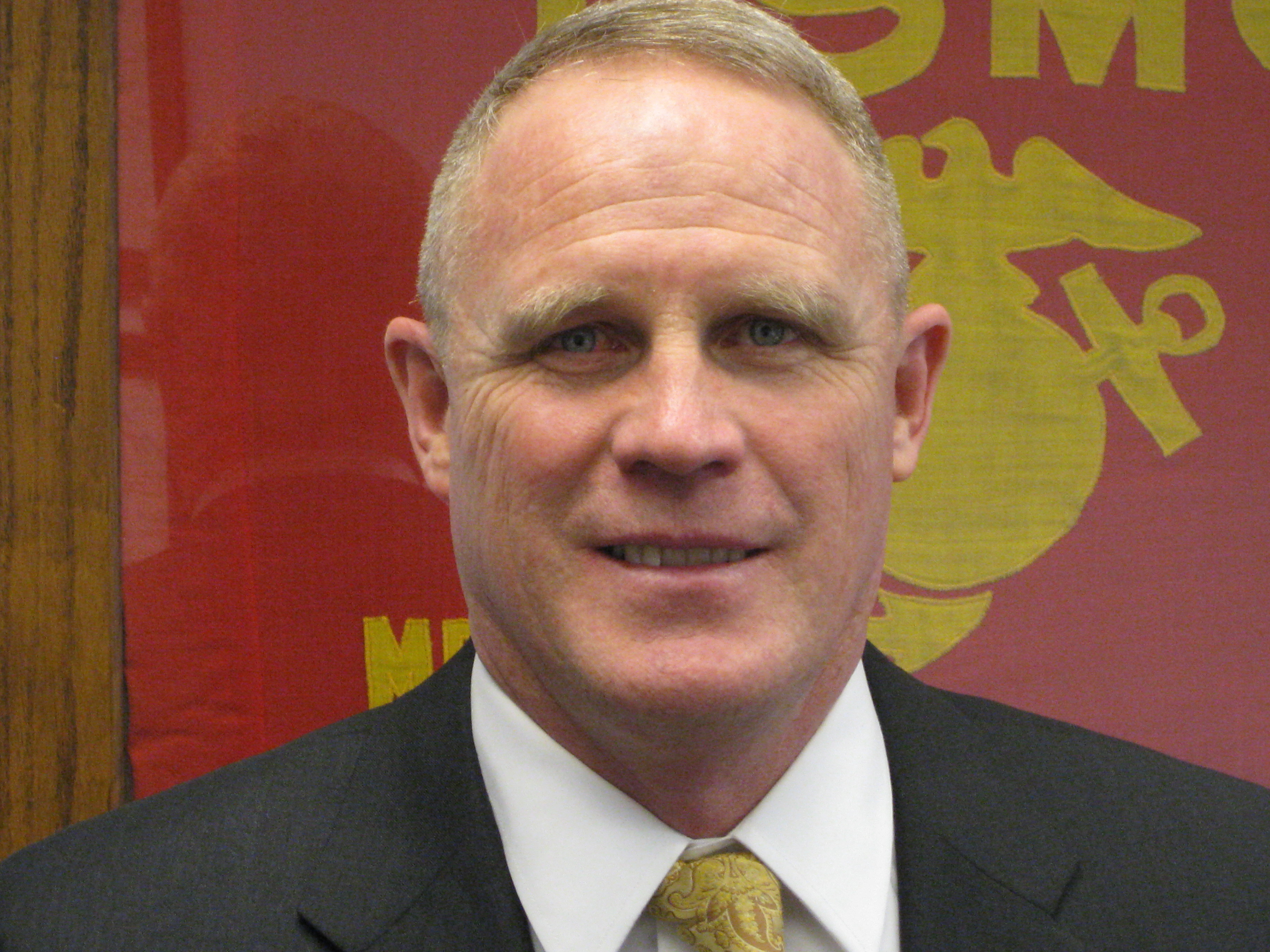 Brigadier General David G. Reist, USMC (Ret.), is a Senior Fellow with the Potomac Institute for Policy Studies.
Brigadier General David G. Reist, USMC (Ret.), is a Senior Fellow with the Potomac Institute for Policy Studies.
He most recently served as the Assistant Deputy Commandant, Installations and Logistics Department, (LP), Headquarters, United States Marine Corps, Washington, DC.
Brigadier General Reist’s command assignments include: CO Company A, 2nd Landing Support Battalion (1981-1982); CO Company A, Marine Barracks 8th & I (1985-1986); CO Beach & Port Company, 2nd Landing Support Battalion (1989-1990); CO 1st Landing Support Battalion (1997-1998); CO 1st Transportation Support Battalion (2002-2004) (redesignated Transportation Support Group during Operation Iraqi Freedom; Combat Service Support Group-11 during Operation Iraqi Freedom-II) and CG 1st Force Service Support Group (redesignated 1st Marine Logistics Group) (2005-2007).
Brigadier General Reist’s staff assignments include: Division G-4, 3rd Marine Division (1982-1983); Head, Motor Transport, Engineer, and Utilities Writer Section, Marine Corps Institute (1983-1984); Registrar, Marine Corps Institute (1984-1985); Operations Officer, MSSG-22 for LF6F 4-87 and 1-89 (1987-1989); Executive Officer, 2nd Landing Support Battalion (1990); Ground Prepositioning Program Sponsor (1990-1992) and Maritime Prepositioning Program Sponsor (1992-1993), Plans, Policies, and Operations, Headquarters Marine Corps; Current Operations Officer, U.S. Central Command J-4/7 (1994-1997); Deputy G-3, 1st FSSG (2000); Faculty Advisor (2000-2001) and Deputy Director (2001-2002), Marine Corps Command and Staff College; Chief of Staff, 1st FSSG (2004-2005) and Deputy CG (Support), I Marine Expeditionary Force Forward (2006-2007).
Brigadier General Reist graduated from the State University of New York at Geneseo in 1978 with a Bachelor of Science in Biology. He also holds a Master of Strategic Studies from the Marine Corps War College and a Master of Arts in National Security and Strategic Studies from the Naval War College.
 Brian J. Morra has 40 years of experience in general management, strategic planning, and business development in the aerospace and defense industry and as a board member in biotechnology, aerospace, academia, and sports management.
Brian J. Morra has 40 years of experience in general management, strategic planning, and business development in the aerospace and defense industry and as a board member in biotechnology, aerospace, academia, and sports management.
He is Executive Chairman of the board of the Canadian company CAE’s United States Proxy Board.
He is a member of the Bain Company’s board of advisors (A&D practice).
Mr. Morra also is an advisor to the CEO and leadership team at Fusion Constructive, a commercial software company focused on leveraging game technology for the Defense market.
Mr. Morra is the former executive chairman of the board at Akonni Biosystems and is currently on the CEO’s advisory board.
He also serves as chairman of the advisory board of the Armed Forces Cycling Classic.
He is a member (past president) of the College of William and Mary’s Graduate School of Arts and Sciences advisory board.
Lastly, Mr. Morra is a member of the Board of Regents and Senior Fellow of the Potomac Institute for Policy Studies.
At Northrop Grumman Mr. Morra spent 12 years as a sector vice president responsible for strategy, mergers and acquisitions, business development, and investment planning in Northrop Grumman Corporation’s Mission Systems Sector, which has annual revenues of about $12B.
He was a member of the Northrop Grumman corporate Strategic Development Council, providing direct advice to Northrop Grumman’s Chief Executive Officer and his immediate staff. Mr. Morra retired from Northrop Grumman in October 2016.
Prior to joining Northrop Grumman in 2004, Mr. Morra was General Manager of the Transformation & Simulation business unit at General Dynamics. This business grew at an annual rate of 35 percent under Mr. Morra’s P&L leadership.
Prior to the acquisition of Veridian Corporation by General Dynamics in 2003, he served for five years as President of Veridian’s Advanced Systems & Technology Sector – a high technology business with commercial and government clients. He also assisted the Veridian corporate staff on mergers and acquisition projects and with the integration of newly acquired firms.
Mr. Morra served 11 years as an executive at the privately held firm Pacific-Sierra Research Corporation. After a series of increasingly responsible management positions, Mr. Morra was appointed Senior Vice President and Chief Operating Officer of the company. Pacific-Sierra Research Corporation was acquired in 1998 by Veridian.
Mr. Morra’s government service includes a combined 15 years active and reserve duty in the U.S. Air Force as an intelligence officer, including overseas assignments and service on the Air Staff at the Pentagon.
Mr. Morra received a BA degree from the College of William & Mary, an MPA from the University of Oklahoma, and a MA degree in government and national security studies from Georgetown University. He is a graduate of Harvard Business School’s Advanced Management Program.
He is past President of the College of William and Mary’s Graduate School of Arts and Sciences Advisory Board. He was a long-time member of the advisory board at the University of Virginia’s School of Engineering and Applied Sciences. Mr. Morra is a former director of the CEA Corporation, with headquarters in Canberra, Australia.
 Richard Coleman is a Senior Fellow at the Potomac Institute for Policy Studies focused on Cyber Warfare. Complementing his work at the Potomac Institute, Mr. Coleman also advises the Naval Postgraduate School, Monterey, CA and Department of Defense on Cyber Warfare and Remote Sensing.
Richard Coleman is a Senior Fellow at the Potomac Institute for Policy Studies focused on Cyber Warfare. Complementing his work at the Potomac Institute, Mr. Coleman also advises the Naval Postgraduate School, Monterey, CA and Department of Defense on Cyber Warfare and Remote Sensing.
Additionally, Mr. Coleman is Senior Associate of PRASAM, advising a variety of clients on strategic, technology and business development opportunities in Space, Defense and the Intelligence Community. Previously, as Director of Research, he oversaw research for the firm’s clients on a variety of topics including Quantum Computing, BMC3/ISR, Future Combat Systems, Red Force Tracking and Space Based Radar.
Mr. Coleman is also President of Space Transportation Association, a group which focuses on advancing the interests of the space launch industry.
Prior to joining PRASAM, Mr. Coleman co-founded and managed Wireless Power & Light Corporation – a high altitude communications company. While Chairman and CEO of WP&L Mr. Coleman was personally awarded two patents for high altitude communications and related platforms by the US Patent and Trademark Office.
In 1991 Mr. Coleman became Executive Director of Lt. General Dan Graham’s Space Transportation Association, which represented the interests of rocket manufacturers in Washington. After his work at STA, Mr. Coleman co-founded Space Express Corporation with Dave Urie, SR-71 Program Manager and designer of Lockheed Skunk Works’ X-33 / VentureStar reusable rocket. Space Express developed a financing plan for Lockheed based on a combined effort by Industry, Wall Street, and Government.
Prior to working with STA and Lockheed, Mr. Coleman and his family sold Review Management Company, the mutual fund management company of OTC Securities Fund to Rockefeller and Company and The Prospect Group in New York. After the sale Mr. Coleman worked for the two firms searching for investment and acquisition opportunities. Starting in 1987 Mr. Coleman founded and managed a boutique investment bank, RCV Investments, which specialized in Mergers & Acquisitions, working with US, European, and Japanese high tech clients.
Mr. Coleman started on the Hill in 1979 working with the Senate Steering Committee working on nuclear weapons issues and the SALT II Treaty, and later served on the staff of Senator Dick Schweiker (R-PA). At George Washington University, Mr. Coleman received a Wolcott Scholarship and completed his Masters degree in Security Policy Studies in 1983. After graduate school Mr. Coleman served as an Analyst with HRA, Inc, where he analyzed the implications of deploying Intermediate Nuclear Forces and the Strategic Defense Initiative for the Department of Defense and German Ministry of Defense.
Mr. Coleman received a BA in International Relations and History from Lehigh University in 1978 and MA in Security Policy Studies from George Washington University in 1983.
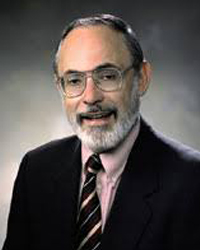 Gerold Yonas, PhD, is a Senior Fellow. Dr. Yonas serves as a Research Science Affiliate at the Mind Research Network in Albuquerque, NM.
Gerold Yonas, PhD, is a Senior Fellow. Dr. Yonas serves as a Research Science Affiliate at the Mind Research Network in Albuquerque, NM.
Dr. Yonas joined the Mind Research Network in 2009, as the director of neurosystems engineering. In his current work, he is dedicated to creating the new fields of neurosystems engineering that links advances in neuroscience with systems engineering through interdisciplinary teams that focus on the development of solutions to complex system problems involving behavior, cognition and neurotechnology.
Previously, Dr. Yonas worked at the Sandia National Laboratories, where he served as vice president of Systems, Science and Technology, and later became Sandia's principal scientist and initiated Sandia's Advanced Concepts Group. He is a Fellow of the American Physical Society and a Fellow of the American Institute of Aeronautics and Astronautics. He has received numerous honors including the US Air Force Medal for Meritorious Civilian Service and the Secretary of Defense Medal for Outstanding Public Service.
Dr. Yonas serves on several defense boards and is an adjunct professor in the Department of Electrical and Computer Engineering at the University of New Mexico. He has published extensively in the fields of intense particle beams, inertial confinement fusion, strategic defense technologies, technology transfer, and "wicked engineering." He received his PhD in engineering science and physics at the California Institute of Technology.
Douglas Bennett is founder and CEO of AURA Technologies based in Research Triangle, North Carolina. Mr. Bennett was previously the sole founder of Bennett Aerospace, an Inc. Magazine Inc.500 designated company, which he successfully grew to a $180 million dollar, global enterprise operating across 11 time zones around the world. Mr. Bennett started AURA Technologies in 2015, where focuses more fully on his core R&D passion.
Douglas Bennett has previously served as the U.S. National Academy of Sciences liaison to the New Zealand Royal Society. He has also served as a Study Director for the National Academy of Science’s / National Research Council’s Aeronautics and Space Engineering Board. In the role, he crafted public policy for the U.S. federal and state governments that shape the United State’s future technology development. While at the NRC, he directed numerous studies. Most notably, a committee on Mars exploration, the recommendations of which are being used by NASA to plan for Mars robotic exploration. Mr. Bennett’s other work at the National Academies included directing committees that assessed the technical quality of $2 billion worth of annual funding for research and development under NASA’s research program. The program covered all aspects of aeronautics and space applications including information technology, data management, nanotechnology, power and propulsion, aircraft design, bio-inspired design, and communications. For State-level efforts, Douglas directed committees that determined in which technologies the State of Ohio invested $40 million when establishing Ohio’s Wright Centers of Excellence in the fields of nanotechnology, information technology, power generation, and aircraft propulsion.
He has served as a consultant to NASA, the US Navy’s Space and Naval Warfare (SpaWar) Systems Center, the US Air Force Laboratory, and DARPA. For DARPA Mr. Bennett created visions of technological impact on complex battle spaces where computers read human bio-signs, including brain signatures, eye tracking and other physiological responses, to gauge a human’s mental operational capacity and adjust information flow accordingly.
Mr. Bennett has worked as a consultant for NEC Corporation in Japan, and a sales engineer in advanced electronics manufacturing for German-based Heraeus GmbH. He has spent over a year of his life on ships, some in oceanographic research and the majority working for the Marine Division of Schlumberger, Inc., as a navigator for oil exploration in the West Indies and the Gulf of Mexico. His work has included extensive international collaborations with Europe, Latin America, North America, Australasia, Japan, and the West Indies, including intensive “international relations immersion training” while working on oil exploration ships, the crews of which represented 10 nationalities speaking 7 languages.
Douglas Bennett received a Mechanical Engineering Degree from Georgia Tech. He also holds a Master’s in English – Creative Writing – from Iowa State University, and a second Master of Science in Interdisciplinary Graduate Studies – concentrating on Astrophysics, English, and Political Science with an emphasis on Technology, Policy, and Culture, also from Iowa State. He is a designated outstanding alumni from Iowa State and was credited with penning the first, and perhaps only, fictional short story used in a National Academy of Sciences report.
 Francis Landolf,Member, Board of Regents, and Senior Fellow
Francis Landolf,Member, Board of Regents, and Senior Fellow
Francis Landolf is a Senior Fellow and a member of the Board of Regents. He currently serves as a Principal with Core Consulting, LLC. Fran created Core Consulting to provide a vehicle for him to match private sector solutions with public sector problems. Through his board and networking activities he becomes aware of private sector innovation in start-ups and attempts make this innovation visible to the missions within the IC and Defense establishments. Fran has performed executive coaching and leadership development for both private and public sector executives and teams. He is currently an advisor to a number of small innovative product companies that are or have potential to address both government and commercial applications. Before creating his consulting practice he led public sector organizations responsible for delivering time critical services essential for informed military and National level decisions at the National Security Agency. The organizations he created and led performed analysis cryptographic systems, unknown signals, communications systems and computer networks. They also developed and deployed the processing solutions that transformed network and communications data into a form consumable by intelligence analysts.
Fran currently serves on the board of the Hume Center of the Virginia Polytechnic Institute and State University, the Human Language Technology Center of Excellence at Johns Hopkins University and the Cyber Incubator at University of Maryland, Baltimore County. He has previously served on the Technical Advisory Group for the Senate Select Committee for Intelligence, the National Academy of Sciences Committee on Science and Technology for Defense Warning, MITRE Corporation Intelligence Advisory Board, and on several panels of the National Security Agency Advisory Board.
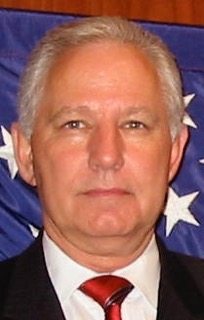 Robert “Bob” C. Aldrich,FBI (Ret.), Fellow
Robert “Bob” C. Aldrich,FBI (Ret.), Fellow
Bob Aldrich is the Principal of Robert Aldrich Associates, a limited liability company offering professional services in New York, New Jersey and Connecticut. He is a Senior Investigator for Global Risk & Investigative Diligence, Manhattan, NY, a global, full-service, security, investigative and crisis management consulting firm.
Bob’s law enforcement career began in 1971 while clerking at the Columbia, SC office of the Federal Bureau of Investigation (FBI), and he was later sworn in as a Special Agent. His offices were in Springfield, IL, New York, NY, FBI Academy - Critical Incident Response Group and the Pentagon and work involved interstate and violent crimes, crimes on a government reservation, foreign counterintelligence, and training with U.S. military special operations interests. As a certified FBI Instructor, SWAT operator and jump wings from the Navy and diving badge from the U.S. Army Special Forces Underwater Combat Diving School, his Bureau and military backgrounds served him well as Special Consultant to Commandant of the Marine Corps under legendary Marine General Al Gray. His advancement to GS-15 occurred as the key architect of a training paradigm to ensure the Marine Corps’ entry into special operations. The distinction of being the FBI’s first-ever Special Agent assigned directly to a U.S. Armed Forces Service Chief for sustained periods of time, 1987-1991 and 1998-2001, was a span that included five Commandants of the Marine Corps.
After retiring from the Bureau in 2001 and up until 2004, he fulfilled the role of National Coordinator for Law Enforcement, Public Safety and Civil Support at Headquarters, U.S. Marine Corps - Plans, Policies and Operations Department – PS. The billet had cognizance over the FBI-USMC TAMACOR Program and strengthened National Capital Region law enforcement and public safety relationships at all levels while assisting key planners to shape and implement Marine Corps policies for combatting terrorism, continuity of operations, critical infrastructure protection and support to civil authorities. Subsequent advisory roles were with the Civitas Group, Washington, D.C., EAI (acquired by Science & Applications Company - SAIC), Vectormax, Jersey City, NJ and liaison with the Director of Operations: HQMC – PP&O. In 2007, he became the Chief Security Officer at American Defense Systems, Inc., a world leader in the design, fabrication and installation of transparent and opaque armor systems. From 2011-2020, he worked for the FBI as a Special Investigator while conducting backgrounds and security clearance investigations of Bureau and other government agency personnel.
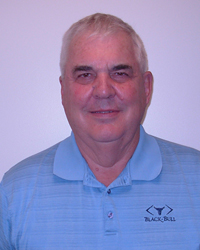 Scott Laidig is a co-founder of VisiCom Laboratories, the founder of the history website eHistory.com, and the biographer of General Al Gray, 29th Commandant of the Marine Corps and the Chairman of the Potomac Institute for Policy Studies' Board of Regents.
Scott Laidig is a co-founder of VisiCom Laboratories, the founder of the history website eHistory.com, and the biographer of General Al Gray, 29th Commandant of the Marine Corps and the Chairman of the Potomac Institute for Policy Studies' Board of Regents.
Mr. Laidig graduated with an AB in History from Ohio State in 1965, and was commissioned a Second Lieutenant in the US Marine Corps. He joined the 2nd Battalion, 4th Marines in February 1966. After Vietnam in 1967, with the rank of Captain, he was sent to the Russian course at the Defense Language Institute and subsequently assigned to Company E, Marine Support Battalion in Kami Seya and then Misawa, Japan. He completed seven reconnaissance missions aboard submarines of the Pacific Fleet. One mission was made famous in Sherry Sontag’s best-selling book about Soviet-American submarine operations, Blind Man’s Bluff.
Mr. Laidig left the Marine Corps in 1974 to work for two defense contractors before starting his own firm in 1982. He co-founded VisiCom Laboratories in 1989. Mr. Laidig met Gen Al Gray when the General joined VisiCom as a Director following his retirement in 1991. VisiCom grew to an organization with revenues approaching $60M when it was sold to Titan Corporation in 1997.
Mr. Laidig earned a Master's Degree in History from American Military University in 1995. Retiring from corporate life, he founded eHistory.com, which was donated to Ohio State in 2004 and remains a popular history website at www.ehistory.osu.edu. In 2007, Mr. Laidig began writing a partial biography of Gen Gray. The Potomac Institute Press will publish Al Gray, Marine: Volume 1, The Early Years, 1950-1967 in 2012. Mr. Laidig is currently completing Volume 2, which covers 1968-1975; Volume 2 should be published in 2013.
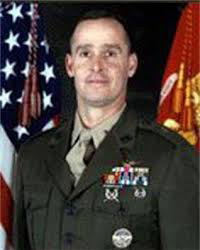 Bill Whitlow began his military career upon graduation from college in 1971. He served as a U.S. Marine for thirty-two years. During his service as a Marine, he was assigned to various operational units, as well as tours of duty at the United States Air Force Academy, the Department of State, Office of Secretary of Defense and as the Director for Expeditionary Warfare for the Chief of Naval Operations. Since retirement from military service, he has served as Vice President & Deputy General Manager for Tactical Services Division for the Titan Corporation. He also served in the Senior Executive Seminar fellowship at Harvard, as well as Seminar Twenty-one Strategic Studies fellowship with MIT. In addition to a Bachelors degree, he holds graduate degrees in Strategic Studies, Contracting Management, and International Relations.
Bill Whitlow began his military career upon graduation from college in 1971. He served as a U.S. Marine for thirty-two years. During his service as a Marine, he was assigned to various operational units, as well as tours of duty at the United States Air Force Academy, the Department of State, Office of Secretary of Defense and as the Director for Expeditionary Warfare for the Chief of Naval Operations. Since retirement from military service, he has served as Vice President & Deputy General Manager for Tactical Services Division for the Titan Corporation. He also served in the Senior Executive Seminar fellowship at Harvard, as well as Seminar Twenty-one Strategic Studies fellowship with MIT. In addition to a Bachelors degree, he holds graduate degrees in Strategic Studies, Contracting Management, and International Relations.
Michael W. Powers is a Senior Fellow of the Institute. Mr Powers most recently served as the Technical Director for Geospatial Research and Engineering within the US Army Engineer Research and Development Center.
Prior to joining the Institute, Mr. Powers gained 30 years of increasing responsibility and leadership in Department of Defense related research, development, technical management and thought leadership, addressing Command and Control (C2), Military Intelligence and Geospatial Intelligence requirements and capability solutions. Within this area of expertise, specific focus and research was devoted to soldier and Marine decision-making processes as well as information and knowledge management.
Mr. Powers served as the Technical Director for Geospatial Research and Engineering within the US Army Engineer Research and Development Center from 2006 through 2011. Prior to that position, his career in technical program development and management within the Army and at the Defense Advanced Research Projects Agency resulted in the successful development, transition and fielding of decision aids and analytic tools supporting missions ranging from small unit operations through strategic ballistic missile defeat.
Mr. Powers attended the Federal Executive Institute residency program, where he developed and later applied skills in effective team formation, team innovation and group problem-solving and individual and team mentoring. These skills also proved effective in performing the evaluation of organizational effectiveness as related to an organization's mission, objectives, processes and operations.
Mr. Powers received his B.S. from Salisbury State University in Geography and his graduate studies were at the University of Maryland and the University of Virginia in Geography and Systems Engineering, respectively. Mr. Powers is the recipient of the Army's Meritorious Civilian Service Award, Superior Civilian Service Award and the Bronze De Fleury Medal for his contributions to the Engineer Regiment.
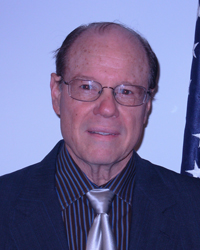 Dr. James Richardson is a Senior Fellow at the Potomac Institute, and an Associate with Burdeshaw Associates, Inc. He is also currently serving as Technology Advisor to Globesec Nine, an investment group. In March 2004, he presented a paper and wrote a chapter for the Science and Technology Policies Workshop on Anti-Terrorism Era, in Manchester, England (a NATO workshop sponsored by PREST). As a Potomac Institute Senior Fellow, Dr. Richardson participated on a Defense Intelligence Agency (DIA) Lessons Learned Panel, and helped to survey industry and governments for countermeasures against improvised explosive devices for the Rapid Equipping Force and the Joint Improvised Explosive Device Defeat Task Force.
Dr. James Richardson is a Senior Fellow at the Potomac Institute, and an Associate with Burdeshaw Associates, Inc. He is also currently serving as Technology Advisor to Globesec Nine, an investment group. In March 2004, he presented a paper and wrote a chapter for the Science and Technology Policies Workshop on Anti-Terrorism Era, in Manchester, England (a NATO workshop sponsored by PREST). As a Potomac Institute Senior Fellow, Dr. Richardson participated on a Defense Intelligence Agency (DIA) Lessons Learned Panel, and helped to survey industry and governments for countermeasures against improvised explosive devices for the Rapid Equipping Force and the Joint Improvised Explosive Device Defeat Task Force.
From 1996 to 2003, he was Vice President for Research and Chief Scientist at Potomac Institute for Policy Studies, where he led major studies in several subject areas. Some of these studies involved: 1) transitioning the Defense Advanced Research Projects Agency’s (DARPA) technologies (funded by DARPA), 2) counter-terrorism and technology forecasting (for private industry and foundations), 3) impacts of science and technology on national security and how to improve decisions on science-laden issues (sponsored and funded by nine agencies and offices), 4) efficacy of military/commercial dual use technologies and products (funded by DARPA), 5) commercialization of the International Space Station (funded by NASA), 6) shipbuilding technologies developed under the MARITECH program, 7) impacts on global competitiveness of the U.S. shipbuilding industry and Navy ship construction (funded by DARPA), 8) a review of the Technology Reinvestment Project (sponsored and funded by DARPA), 9) an investigation of the Navy’s potential role in NMD (for the Assistant Secretary of the Navy), and 10) a forecast of impacts of science on military operations (multiple sponsors). He also advised several industries and organizations (e.g., the New York Police Department) on various technologies.
Dr. Richardson was an Adjunct Research Staff Member at the Institute for Defense Analyses (IDA) from August 1994 to January 1996.
From 1987 to 1994, he held several positions at DARPA (e.g., Director of the Land Systems Office, Special Assistant to the Director of DARPA, and Scientific Advisor for the US Ambassador to the Conventional Forces in Europe treaty negotiations in Vienna, Austria). He led the development of new combat technologies, wrote and negotiated an MOU with Department of Justice (signed by the Attorney General and Deputy Secretary of Defense), represented DoD in the “Partnership for a New Generation Vehicle” initiative, and directed the DARPA/Army/USMC Joint Armor Anti-Armor program chartered by the Secretary of Defense. His office performed R&D leading to the transition of 16 advanced products to the Army and Marine Corps featuring advanced materials, unconventional lethality and survivability technologies and hypervelocity projectiles, including the first large (9MJ) electromagnetic gun and a “smart minefield.”
From 1970 to 1987, Dr. Richardson held numerous positions at the US Army Missile Command at Redstone Arsenal, AL, from research engineer to the Command’s Deputy Director for Research, Development and Acquisition (SES). He also taught university courses in solid mechanics, kinematics and dynamics of machinery, vibrations and mathematics; as well as continuing education courses in engineering, and he delivered lectures internationally.
He served in the US Army, and was discharged with the rank of Captain.
He has a BSME from North Carolina State University, an MSE from the University of Alabama, and a Ph.D (Theoretical & Applied Mechanics) from the University of Illinois.
Jeff Harris is an Americanaerospace executive who served as 11th Director of the National Reconnaissance Officefrom 1994-1996. Harris graduated from Rochester Institute of Technology. In 1978, he transferred from the National Photographic Intelligence Center to The Office of Development and Engineering.
He is currently the Chairman of the Board of the United States Geospatial Intelligence Foundation.
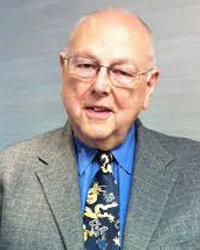 Mr. Howard Schue is a Partner and Executive Vice President of Technology Strategies and Alliances Corporation specializing in line and marketing management, new business development, and strategic planning in the aerospace/defense and the command, control, communications and intelligence (C3I) industries. Mr. Schue served on the 1993 Defense Science Board Summer Study on Global Surveillance and on the 1994 Summer Study on Information Architecture for the Battlefield. He is a member of the American Institute of Aeronautics and Astronautics, The Armed Forces Communications and Electronics Association, the National Military Intelligence Association, the American Society of Military Comptrollers, the Air Force Association, the Association of Old Crows, the Reserve Officers Association, the Air War College Alumni Association, the Planetary Society, the West Point Association of Graduates, and the Army Athletic Association.
Mr. Howard Schue is a Partner and Executive Vice President of Technology Strategies and Alliances Corporation specializing in line and marketing management, new business development, and strategic planning in the aerospace/defense and the command, control, communications and intelligence (C3I) industries. Mr. Schue served on the 1993 Defense Science Board Summer Study on Global Surveillance and on the 1994 Summer Study on Information Architecture for the Battlefield. He is a member of the American Institute of Aeronautics and Astronautics, The Armed Forces Communications and Electronics Association, the National Military Intelligence Association, the American Society of Military Comptrollers, the Air Force Association, the Association of Old Crows, the Reserve Officers Association, the Air War College Alumni Association, the Planetary Society, the West Point Association of Graduates, and the Army Athletic Association.
 The Honorable Donald M. Kerr, Ph.D. Member, Board of Regents and Senior Fellow
The Honorable Donald M. Kerr, Ph.D. Member, Board of Regents and Senior Fellow
Dr. Donald M. Kerr is chairman of the Board of Trustees of the MITRE Corporation. He first joined the board in 2009, was named vice chairman in 2014, and elevated to chairman in 2018. He also serves as a director of Michael Baker International, LLC; and Orbis Operations, LLC. Previously, he was confirmed by the Senate on October 4th, 2007 as principal deputy director of national intelligence and served in that position until January 20th, 2009.
From July 21st, 2005, Dr. Kerr was the fifteenth director of the National Reconnaissance Office and concurrently served as the assistant to the Secretary of the Air Force for Intelligence Space Technology. Prior to that he was deputy director for science and technology at the Central Intelligence Agency since August 2001,
From October 1997 until August 2001, Dr. Kerr was an assistant director of the Federal Bureau of Investigation in charge of the Laboratory Division. Dr. Kerr’s previous government service was with the Department of Energy from August 1976 through July 1979, first in Las Vegas as deputy manager of Nevada Operations, and subsequently in Washington, D.C., as the deputy assistant secretary and acting assistant secretary for Defense Programs and later for Energy Technology.
Dr. Kerr has held several key executive positions in private industry. From 1993 through 1996, he was corporate executive vice president and a director at Science Applications International Corporation. Dr. Kerr was president and a director of EG&G, Inc., from 1989 through 1992. He served as a director of Resources for the Future from 1990 through 1999 and on the executive committee of the National Association of Manufacturers Board from 1987 through 1992.
Dr. Kerr was the fourth director of the Los Alamos National Laboratory from 1979 to 1985. He was also employed at Los Alamos from 1966 until 1976, conducting and leading research in high altitude weapons effects, nuclear test detection and analysis, weapons diagnostics, ionospheric physics, and alternative energy programs.
Dr. Kerr received his bachelor’s degree in electrical engineering in 1963 and went on to earn an M.S. (1964) in microwave electronics and a Ph.D. (1966) in plasma physics and microwave electronics, all from Cornell University. He is a fellow of the American Physical Society and the American Association for the Advancement of Science. His awards include: DOE Outstanding Service Medal, CIA Distinguished Intelligence Medal, Secretary of Defense Medal for Outstanding Public Service, NRO Distinguished Service Medal, and the National Intelligence Distinguished Service Medal.
 Gordon Oehler received both a B.S. in Electrical Engineering and a Ph.D. in physics from Rensselaer Polytechnic Institute. He is a 1981 graduate of the National War College.
Gordon Oehler received both a B.S. in Electrical Engineering and a Ph.D. in physics from Rensselaer Polytechnic Institute. He is a 1981 graduate of the National War College.
After receiving his Ph.D., Dr. Oehler worked for a small firm in upper New York where he designed instrumentation for metallurgical applications. He subsequently joined the CIA in 1972 and served in a variety of analytical and managerial positions involving weapons systems and foreign policy analysis. Included in these assignments were the Chief of the Technology Transfer Assessment Center (responsible for impeding the flow of Western technology into Soviet weapons programs) and the Director of the Office of Scientific and Weapons Research (responsible for all analysis and reporting relating to foreign weapon systems and technology developments).
In May 1992, Dr. Oehler was appointed the Director of the Nonproliferation Center. In this capacity, he was the senior Intelligence Community spokesman on proliferation issues.
After leaving the CIA in October 1997, he served as corporate vice president for corporate development at Science Applications International Corporation. Subsequent to that, he was a deputy staff director for the president’s WMD commission that examined the intelligence failures leading up to the second Gulf war. The commission made seventy-three recommendations to improve intelligence capabilities—most of which have been adopted. He currently serves on a senior policy advisory board for the Department of State and is a working group chairman for the Congressional Commission on the Strategic Posture of the United States. He is also a Senior Fellow at the Potomac Institute for Policy Studies.
 Lt. Gen. Keith Stalder, USMC, Retired founded KSA Integration, LLC in 2010. Building on his 40 years of success and leadership in the Marine Corps and Department of Homeland Security, he brings a broad and deep appreciation for, and understanding of, the fundamental challenges of organizations and businesses, both in government and the private sectors. He is a Senior Fellow at the Center for Naval Analyses (CNA), the Potomac Institute for Policy Studies (PIPS), and the Global Resilience Institute (GRI). He served as the National Commander of the Marine Corps Aviation Association for five and a half years and is a member of the Golden Eagles.
Lt. Gen. Keith Stalder, USMC, Retired founded KSA Integration, LLC in 2010. Building on his 40 years of success and leadership in the Marine Corps and Department of Homeland Security, he brings a broad and deep appreciation for, and understanding of, the fundamental challenges of organizations and businesses, both in government and the private sectors. He is a Senior Fellow at the Center for Naval Analyses (CNA), the Potomac Institute for Policy Studies (PIPS), and the Global Resilience Institute (GRI). He served as the National Commander of the Marine Corps Aviation Association for five and a half years and is a member of the Golden Eagles.
While on active duty he was the Commanding General of U.S. Marine Corps Forces Pacific and before that Commanding General of II Marine Expeditionary Force.
He has served as the Commanding General of seven separate organizations and is one of the military's most experienced operational commanders. As the senior Marine Military Representative to the U.S. Pacific Command, he was instrumental in negotiating international accords on the basing of U.S. forces in Japan and strengthening international alliances to preserve peace in East Asia and the Pacific.
Lieutenant General Stalder served as the Commanding General, Training and Education Command; Commanding General, 3rd Marine Aircraft Wing in Iraq; and the Deputy Commanding General, 1st Marine Expeditionary Force, in Operation Iraqi Freedom I. He commanded Marine Fighter Attack Squadron 531 and Marine Aviation Weapons and Tactics Squadron One and was the Deputy Director for Plans and Policy, United States Central Command during Operation Enduring Freedom.
He was born in Venezuela and grew up in Alaska. A graduate of Embry-Riddle Aeronautical University, he holds a Masters Degree in Aeronautics.
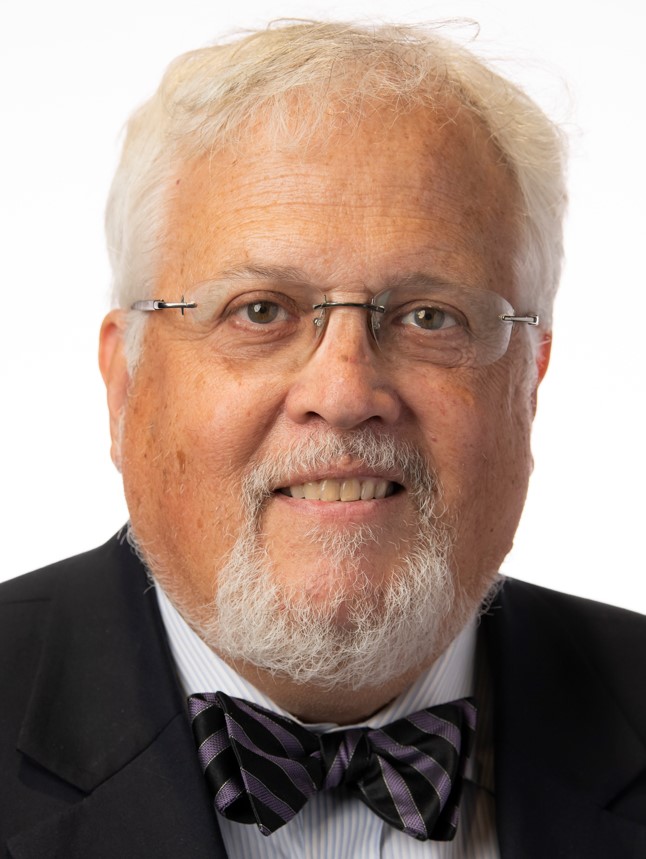 Jonathan C. Javitt, MD, MPH is a physician with a background in pharmaceutical development, information technology, health economics, and public health. His scientific publications have been cited by more than 30,000published authors and he is ranked among the top 1% of quoted scientists worldwide. At the Potomac Institute, he has focused on projects related to biodefense, drug and device approval policy, and the needs of first responders. He currently serves as Chairman and Chief Scientist of NRx Pharmaceuticals (Nasdaq:NRXP), a CNS-focused innovative pharmaceutical company that is developing a first-in-class, Breakthrough Therapy-designated drug to treat suicidal bipolar depression.
Jonathan C. Javitt, MD, MPH is a physician with a background in pharmaceutical development, information technology, health economics, and public health. His scientific publications have been cited by more than 30,000published authors and he is ranked among the top 1% of quoted scientists worldwide. At the Potomac Institute, he has focused on projects related to biodefense, drug and device approval policy, and the needs of first responders. He currently serves as Chairman and Chief Scientist of NRx Pharmaceuticals (Nasdaq:NRXP), a CNS-focused innovative pharmaceutical company that is developing a first-in-class, Breakthrough Therapy-designated drug to treat suicidal bipolar depression.
Dr. Javitt previously served as a commissioned Presidential appointee in the areas of health care and biodefenseunder President George W. Bush ‘43. He was appointed by President Bush in 2003 to the President's Information Technology Advisory Committee (PITAC), where he chaired the Health Subcommittee and also served as a Special Employee of the Undersecretary of Defense (ATL). PITAC’s report, Revolutionizing Health Care through Information Technology, has served as the blueprint for Executive Order 13335, establishing the Office of the National Coordinator for Health IT. Dr. Javitt was also appointed by the White House as an at-large delegate to the 2006 White House Conference on Aging. Under President Clinton, he served as assistant to the Chairman of the Health Professionals Review Group of the White House Health Reform Task Force and a Special Government Employee in the Executive Office of the President. Under Presidents George HW Bush ’41 and President Reagan, Dr. Javitt served as an Expert to the Medicare Health Standards Quality Bureau and was instrumental in developing some of the first uses of medical claims data (today called “Big Data”) for measuring quality of care. This experience led him to found Certitude, Inc., later acquired by United Health Care as Ingenix, Coderyte, Inc. (acquired by 3M), and to participate in the founding and public exit of other successful Health IT companies.
Dr. Javitt has been an expert consultant to the World Bank, the National Institutes of Health, the Health Care Financing Administration, Department of Veterans Affairs, and the ministries of health of United Kingdom, Sweden, Australia, Japan, and the Netherlands. He has been an active consultant in pharmacoeconomics and pharmaceutical development and has completed product development projects for Alcon, Allergan, American Home Products, Chiron, Eyetech, Lilly, Merck, Pharmacia, and Pfizer. He regularly consults on policy and legal issues and is admitted as an expert consultant in both Federal and State jurisdictions.
Dr. Javitt graduated in 1978 with honors in Biochemistry from Princeton University and earned his M.D. at Cornell University Medical College. He was awarded a Kellogg Foundation Fellowship to attend the Harvard School of Public Health, from which he graduated with an M.P.H. in Health Policy and Management. In 2015, he was designated an Alumnus of Merit, the highest honor bestowed by Harvard University to graduates of the School of Public Health.
Dr. Javitt joined the faculty of Johns Hopkins in 1988 as the first ophthalmologist to be granted a Physician Scientist Award by the National Eye Institute of the National Institutes of Health. He continues to serve as an adjunct Professor of Ophthalmology at Johns Hopkins University, which recently recognized his contributions through the establishment of the Jonathan and Marcia Javitt Rising Professorship in Ophthalmology. He joined the faculty of Georgetown University in 1990, where he directed and participated in more than $20 millio of federally-funded research focused on outcomes of, and delivery of, health care including diseases of the eye, diabetes, and breast cancer. He is the author of more than 200 publications related to health care delivery and holds multiple U.S. patents. He authored the first book on computers in medicine and has published more than 200 scientific works in the New England Journal of Medicine, the Journal of the American Medical Association, and numerous other peer-reviewed publications.
 The Honorable John Young, former Under Secretary of Defense for Acquisition, Technology and Logistics, is a Senior Fellow and Member of the Board of Regents of the Potomac Institute for Policy Studies.
The Honorable John Young, former Under Secretary of Defense for Acquisition, Technology and Logistics, is a Senior Fellow and Member of the Board of Regents of the Potomac Institute for Policy Studies.
Mr. Young’s distinguished career includes past positions as Director, Defense Research and Engineering (DDR&E); and Assistant Secretary of the Navy for Research, Development, and Acquisition (ASN(RDA)). Prior to these Senate-confirmed positions, Mr. Young served ten years as a professional staff member of the Senate Defense Appropriations Committee, Subcommittee on Defense.
During his tenure at the Department of Defense, Mr. Young led the Mine Resistant Ambush Protected (MRAP) Vehicle Program at the direction of Defense Secretary Gates. Additional accomplishments include guiding the Biometrics Task Force, establishing the Reliance 21 science and technology oversight process, guiding the SSGN Submarine Conversion program, securing the Virginia Class Submarine multi-year contract, and leading the unprecedented swap of DDG-51 destroyers and LPD-17 amphibious ships between two industry ship yards.
Mr. Young is an Aerospace Engineering graduate of the Georgia Institute of Technology and received a Master's Degree in Aeronautics and Astronautics from Stanford University.
Radm John E. (Ted) Gordon, JAGC, USN ret. was the Senior Vice President Washington Operations for Alliant Techsystems Inc. (ATK) from 2001 to April 2007. Prior to that he worked for Litton Industries serving as Vice President for Washington Operations. In both positions he was responsible for all company interface with Congress, the Federal Government, and all other customers in the Washington area.
Rear Admiral Gordon retired from the US Navy after having served in several senior positions. He was the Judge Advocate General of the Navy from 1990 to 1992. He had previously served as the Deputy Judge Advocate General of the Navy and as the Commander of the Navy Legal Services Command. From 1987 to 1989, Radm Gordon was the Commander of the Naval Security Investigative Command, where he served simultaneously as the Director of the Naval Investigative Service and as the Assistant Director of Naval Intelligence for Counterintelligence. During these assignments Radm Gordon supervised much of the conduct of the largest Government criminal procurement investigation, Ill Wind, and the investigation into the Marine Corps Security Guard involvement in allowing Soviet agents access to the US Embassy in Moscow. Both investigations resulted in substantial criminal convictions. From 1986 to 1987, Radm Gordon was the Deputy Assistant Secretary of Defense (Legislative Affairs) for Defense Secretary Casper Weinberger.
Prior to being promoted to flag rank, Radm Gordon seved as the Deputy Navy Chief of Legislative Affairs (Senate) and for over four years as Special Assistant to the Secretary of the Navy (John F. Lehman) for Legal and Legislative Affairs. He also served in several military justice positions such as Deputy Officer in Charge of the Philadelphia Navy Legal Service Office and as Special Court Martial Judge.
Radm Gordon entered the navy up graduation from the U S Naval Academy in 1964. His early assignments included tours aboard two combatant ships (including service in the Vietnam War) and as the contracting officer for the Philadelphia Naval Shipyard. He recieved his Juris Doctor degree from Temple University School of Law in 1973.
Radm Gordon has served as the Judge Advocate for the Navy League, Judge Advocate for the Naval Order and Judge Advocate for the Naval Academy Foundation. He is currently a Trustee and Judge Advocate for the Naval Academy Foundation (Athletic and Scholarship Division).

